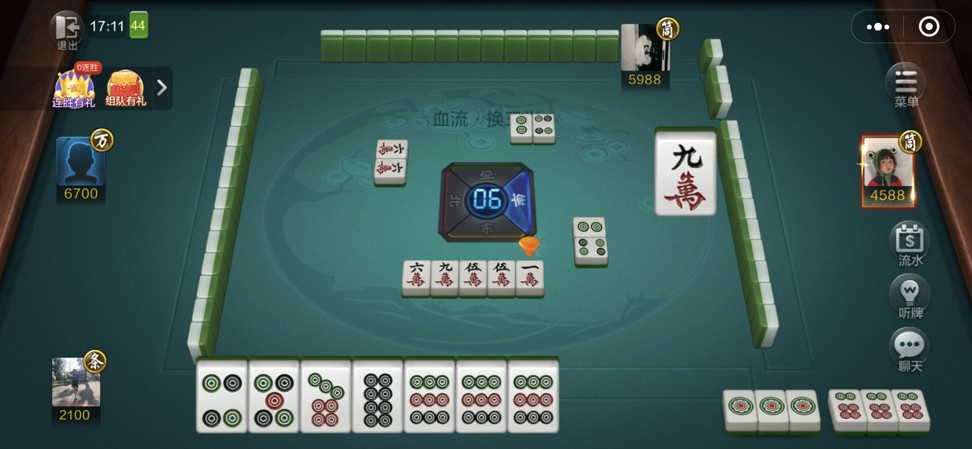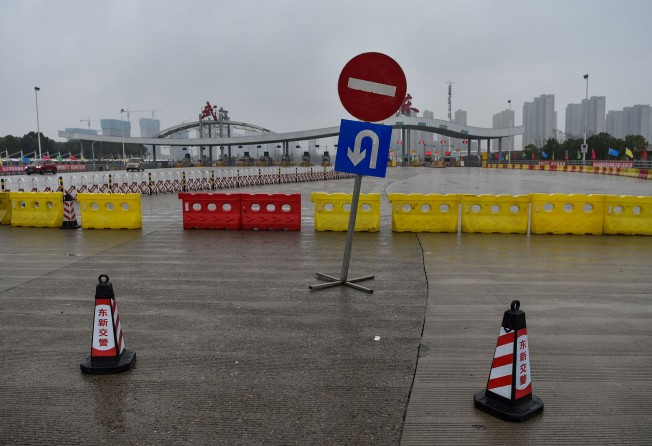
Separated by Wuhan lockdown, staying close through tech: how my family bonded over news, games and videos this Lunar New Year
- Wuhan, the epicentre of the coronavirus outbreak, has been locked down since January 23
- Unable to spend the Lunar New Year holiday together, Post reporter Celia Chen and her parents in Wuhan stay in touch and pass the time with technology

In the past 10 days or so since my hometown Wuhan went into lockdown due to the coronavirus outbreak, my mum has been outside just once, to take out the trash.
Any other year around this time, she would be busy preparing food for Lunar New Year meals or playing mahjong – a tile-based strategic game known as China’s “national pastime” – with family members.
But the lockdown, announced on January 23 – two days before the start of the Lunar New Year holiday – has left her to celebrate New Year’s Eve, traditionally a time for family reunions, alone in our home.
As the situation in my hometown worsened, I cancelled plans to fly back from Shenzhen, where I am based. My dad, who works for a natural gas company in a different part of the city, has also been unable to go home as public transport within Wuhan has been shut down. He told me he thinks it is important for him to stay on duty at this critical time to guarantee a safe and reliable gas supply to all residents in the city, most of whom are sequestered at home.
Due to spending Lunar New Year in separate places, my family has had to rely on phone calls and our shared chat group on Tencent’s ubiquitous app WeChat to keep in contact this year.
As a reporter covering technology news, I thought I would be the one updating them on the latest about the coronavirus situation. But to my surprise, my parents, who are relatively new internet users in my view, have been sending me news on the epidemic before I’ve seen it.
My mum said she monitors the news every morning when she wakes up through the Baidu news app, WeChat and Chinese news aggregator Jinri Toutiao. “I watch TV but now it is not the main channel for me to get the latest news,” my mum told me. “The apps can alert me as soon as the news is out, but the TV cannot, always delivering news hours later.”
My parents have also been getting a lot of information from chat groups on WeChat, often trusting whatever their colleagues and friends send. I worry a lot about them potentially being misled by some of the fake news and rumours circulating online about the coronavirus outbreak.
To distract my mum from the barrage of virus-related information, real or fake, I asked her to play mahjong online with me. She proved to be quite an expert WeChat user, sending a link to a mahjong mini programme to my family group and asking us to join the same virtual “room” so we can play mahjong together, continuing a family tradition we are unable to carry out in person this year.

Alone at home, my mum, who works at a kindergarten, has also found other ways to entertain herself online. “I think what I can do now is to stay healthy physically and mentally, so I don’t burden the doctors further,” she said in one of our conversations. “It is not true if I say I do not feel frightened at all but I have to find ways to keep healthy and entertain myself until the lockdown ends.”
To maintain her fitness, she follows dance videos on popular short-video platforms Kuaishou and Douyin as exercise in the morning. “My young colleagues keep me updated about the most popular apps and teach me how to use them,” she said.
She also sends me funny videos on Douyin – the mainland Chinese version of TikTok – showing how bored people staying home due to the outbreak are killing time. Some, for example, showed people dressing up to perform dragon and lion dances, traditionally performed at the Chinese Spring Festival gala, at home. Others showed people fishing from their fish tanks or counting the number of seeds in strawberries.
Compared to the short videos that my mum is now addicted to, I am more interested in live-streaming platforms because there is more interaction.
Recently, I’ve been glued to CCTV’s live stream of the non-stop construction of two temporary hospitals, Huoshenshan and Leishenshan, in Wuhan. I’m not the only one: at its peak, there were about 50 million Chinese internet users watching what they estimated to be about 190 workers building the hospitals in my hometown around the clock. Although I cannot see the construction very clearly from the live video, I find some of the comments funny.
“I can write on my resume that I am one of the supervisors of two national projects when I look for a new job,” one person commented. Another nicknamed one of the trucks – which was being used to transport lime, a construction material – Song Hui Zong. The first two characters of the name, which was that of an emperor from the Song Dynasty, sound similar to "deliver lime" in Chinese.
Purchase the China AI Report 2020 brought to you by SCMP Research and enjoy a 20% discount (original price US$400). This 60-page all new intelligence report gives you first-hand insights and analysis into the latest industry developments and intelligence about China AI. Get exclusive access to our webinars for continuous learning, and interact with China AI executives in live Q&A. Offer valid until 31 March 2020.